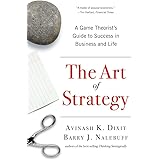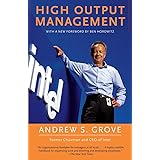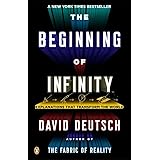




Download the free Kindle app and start reading Kindle books instantly on your smartphone, tablet, or computer - no Kindle device required.
Read instantly on your browser with Kindle for Web.
Using your mobile phone camera - scan the code below and download the Kindle app.

 Audible sample Sample
Audible sample Sample



Hackers and Painters: Big Ideas from the Computer Age 1st Edition
"The computer world is like an intellectual Wild West, in which you can shoot anyone you wish with your ideas, if you're willing to risk the consequences. " --from Hackers & Painters: Big Ideas from the Computer Age, by Paul Graham
We are living in the computer age, in a world increasingly designed and engineered by computer programmers and software designers, by people who call themselves hackers. Who are these people, what motivates them, and why should you care?
Consider these facts: Everything around us is turning into computers. Your typewriter is gone, replaced by a computer. Your phone has turned into a computer. So has your camera. Soon your TV will. Your car was not only designed on computers, but has more processing power in it than a room-sized mainframe did in 1970. Letters, encyclopedias, newspapers, and even your local store are being replaced by the Internet.
Hackers & Painters: Big Ideas from the Computer Age, by Paul Graham, explains this world and the motivations of the people who occupy it. In clear, thoughtful prose that draws on illuminating historical examples, Graham takes readers on an unflinching exploration into what he calls "an intellectual Wild West."
The ideas discussed in this book will have a powerful and lasting impact on how we think, how we work, how we develop technology, and how we live. Topics include the importance of beauty in software design, how to make wealth, heresy and free speech, the programming language renaissance, the open-source movement, digital design, internet startups, and more.
-
ISBN-100596006624
-
ISBN-13978-0596006624
-
Edition1st
-
PublisherO'Reilly Media
-
Publication dateMay 1, 2004
-
LanguageEnglish
-
Dimensions5.87 x 0.98 x 8.78 inches
-
Print length258 pages
Similar items that may ship from close to you
From the Publisher
 |
 |
 |
|
|---|---|---|---|
| Hacker Culture A to Z | Hackers | Hackers & Painters | |
| Customer Reviews |
5.0 out of 5 stars
1
|
4.5 out of 5 stars
737
|
4.5 out of 5 stars
721
|
| Price | $19.20$19.20 | $15.81$15.81 | $15.49$15.49 |
| From O'Reilly Media | A Fun Guide to the Fundamentals of Cybersecurity and Hacking | Heroes of the Computer Revolution | Big Ideas from the Computer Age |
Editorial Reviews
About the Author
Paul Graham , designer of the new Arc language, was the creator of Yahoo Store, the first web-based application. His technique for spam filtering inspired most current filters. He has a PhD in Computer Science from Harvard and studied painting at RISD and the Accademia in Florence.
Product details
- Publisher : O'Reilly Media; 1st edition (May 1, 2004)
- Language : English
- Hardcover : 258 pages
- ISBN-10 : 0596006624
- ISBN-13 : 978-0596006624
- Item Weight : 1.22 pounds
- Dimensions : 5.87 x 0.98 x 8.78 inches
- Best Sellers Rank: #720,490 in Books (See Top 100 in Books)
- #472 in Computer Hacking
- #866 in Software Development (Books)
- #2,119 in Programming Languages (Books)
- Customer Reviews:
About the author

Paul Graham (born 13 November 1964) is an English computer scientist, venture capitalist, and essayist. He is known for his work on Lisp, for co-founding Viaweb (which eventually became Yahoo! Store), and for co-founding the Y Combinator seed capital firm. He is the author of some programming books, such as: On Lisp (1993), ANSI Common Lisp (1995), and Hackers & Painters (2004).
Bio from Wikipedia, the free encyclopedia. Photo by Crédit photo: Sarah Harlin [Public domain], via Wikimedia Commons.
Customer reviews
Customer Reviews, including Product Star Ratings help customers to learn more about the product and decide whether it is the right product for them.
To calculate the overall star rating and percentage breakdown by star, we don’t use a simple average. Instead, our system considers things like how recent a review is and if the reviewer bought the item on Amazon. It also analyzed reviews to verify trustworthiness.
Learn more how customers reviews work on Amazon-
Top reviews
Top reviews from the United States
There was a problem filtering reviews right now. Please try again later.
But what is it? Is it a business book, or a technical book? A bit of both actually, with a pinch of social criticism thrown in. There are essays on business --- particularly startups --- and essays on programming languages and how to combat spam, and one delightful one on the difficulty being a nerd in American public schools.
My favorite essay of the 15 --- and picking a favorite is itself a challenge --- is called "What you can't say". It is about heresy, not historical Middle Ages burned-at-the-stake heresy, but heresy today in 2004. And if you believe nothing is heretical today, that no idea today is so beyond the pale that it would provoke a purely emotional reaction to its very utterance, then read some of the other reviews. Graham's idea is not that all heresies are worth challenging publicly, or even that all heresies are wrong, but merely that there is value is being aware of what is heretical, so one can notice where the blind spots are.
Astonishingly good.
Graham has a knack for distilling the essence of things: high schools as holding pens, hacking as a craft, money as a way to move wealth, programming languages as chairs, etc. Two questions seem to drive Graham's writing process: What is the broadest thing that can be said about X without being false? And how can I say it in the simplest manner possible? It's this joint process of abstraction (of content) and simplification (of form) that results in really good essays.
If you are curious about the world and like surprising ideas, then you should probably read this book.
P.S. if you enjoy the essays, definitely check out the endnotes. To simplify his essays, Graham buries a lot of insights at the end.
The first article is triggered by Pauls growing up and asks why nerds are unpopular when you are younger. He explores memories of his childhood and tries to clarify them. He continues with a article after which the book is named. He explains that he has *some* education in painting and explores the similarity between hacking and painting.
The next couple chapters are an attack to taboos in general. What can we say? Why can we say that? And he claims that hackers are more comfortable breaking taboos, breaking the rules.
In the article "The road ahead" he is making predictions related to web-based server software, of which some are insightful (or were insightful). He claims that server-based software will be the future and the recent years have certainly shown that to be true.
The next couple of articles relate to capitalism and I did disagree with a lot of the statements he made in here. Though, often his points are carefully crafts.. here I found them simplistic. It annoyed me and even thought about stop reading it. The well-written-ness made me continue though.
The middle of the book contains an article about spam. This one doesn't fit well in the book and could have better left out, in my opinion.
The last articles in the book relate to programming languages and were fun to read. Paul is a serious Lisp fan and tries to argue about programming languages in such a way that it always supports his chose of lisp. He does make a couple of good points.
All in all, I've enjoyed reading "Hackers & Painters". Its an easy read with interesting strong opinions from Paul. I'd rate it between 3 and 4 stars, mainly because the amount of learning is not high. Though, I remember some articles got me laughing out loud, so decided to go for a 4. Worth reading if you like strong opinions relate to hacker cultures.
I recently decided to purchase and read Graham's book, "Hackers & Painters", to casually read through some of his favorite essays. This book is comprised of 15 of Graham's essays pulled from his blog, which he updates several times a year. The topics of his essays are diverse, but all represent a hacker's point of view.
What makes this book worth reading is that you get inside of Paul Graham's mind. He has an amazingly clear writing style (one that I am extremely fond of), and is able to walk you through his thoughts and arguments in a clear manner.
If you're at all interested in entrepreneurship, technology, or programming, I would give this book a read. It can be read casually in a day or so, and will make you think deeply about the topics discussed for weeks afterwards.
Top reviews from other countries
Se você é programador, LEIA, provavelmente vai ser seu livro favorito.
Reviewed in Brazil on September 8, 2020
Se você é programador, LEIA, provavelmente vai ser seu livro favorito.

If you're a fan of his writing then this is definitely worth picking up.
It's always great to read about PG's thoughts surrounding start-ups and what he learned when he started Viaweb.










